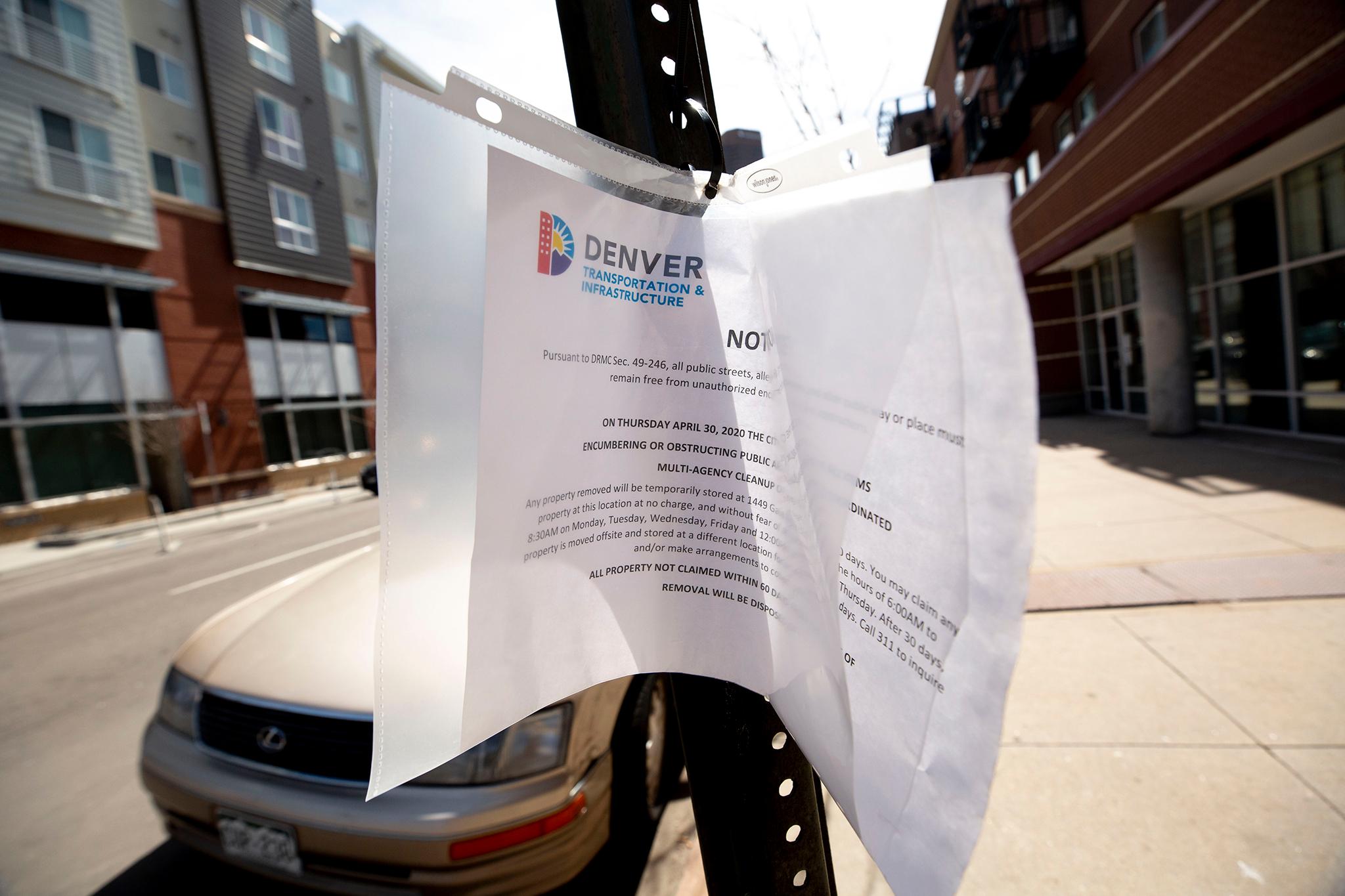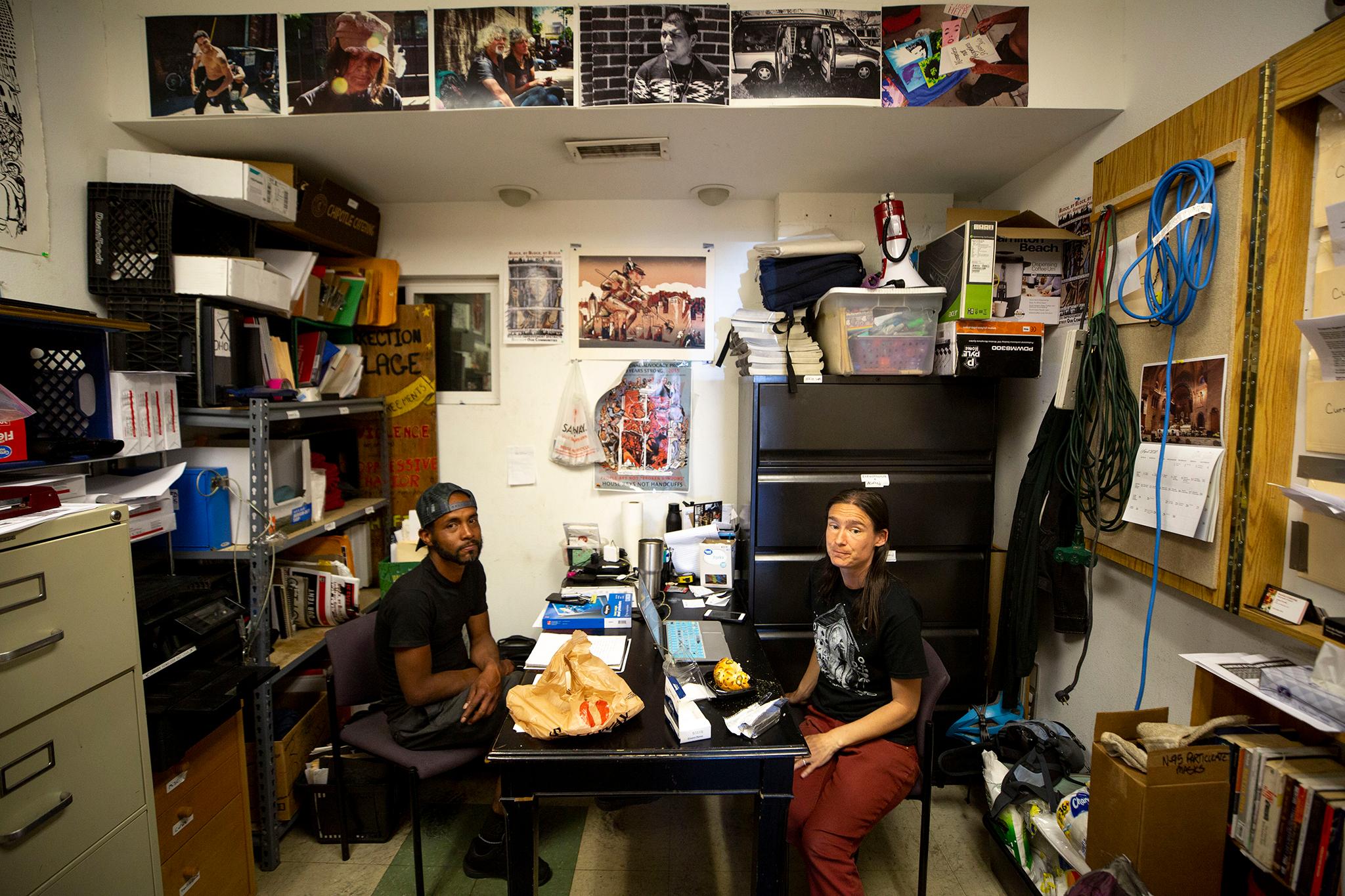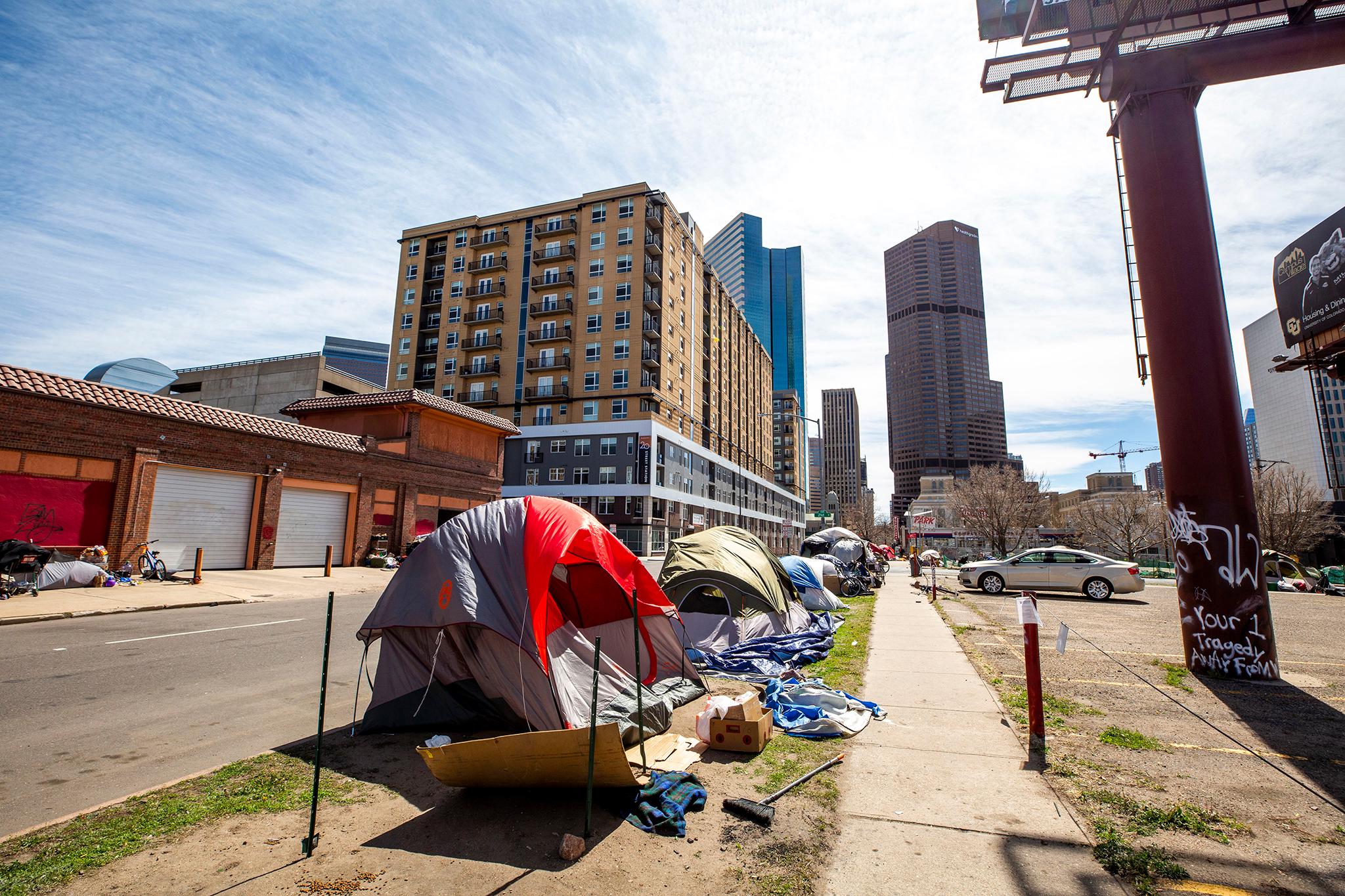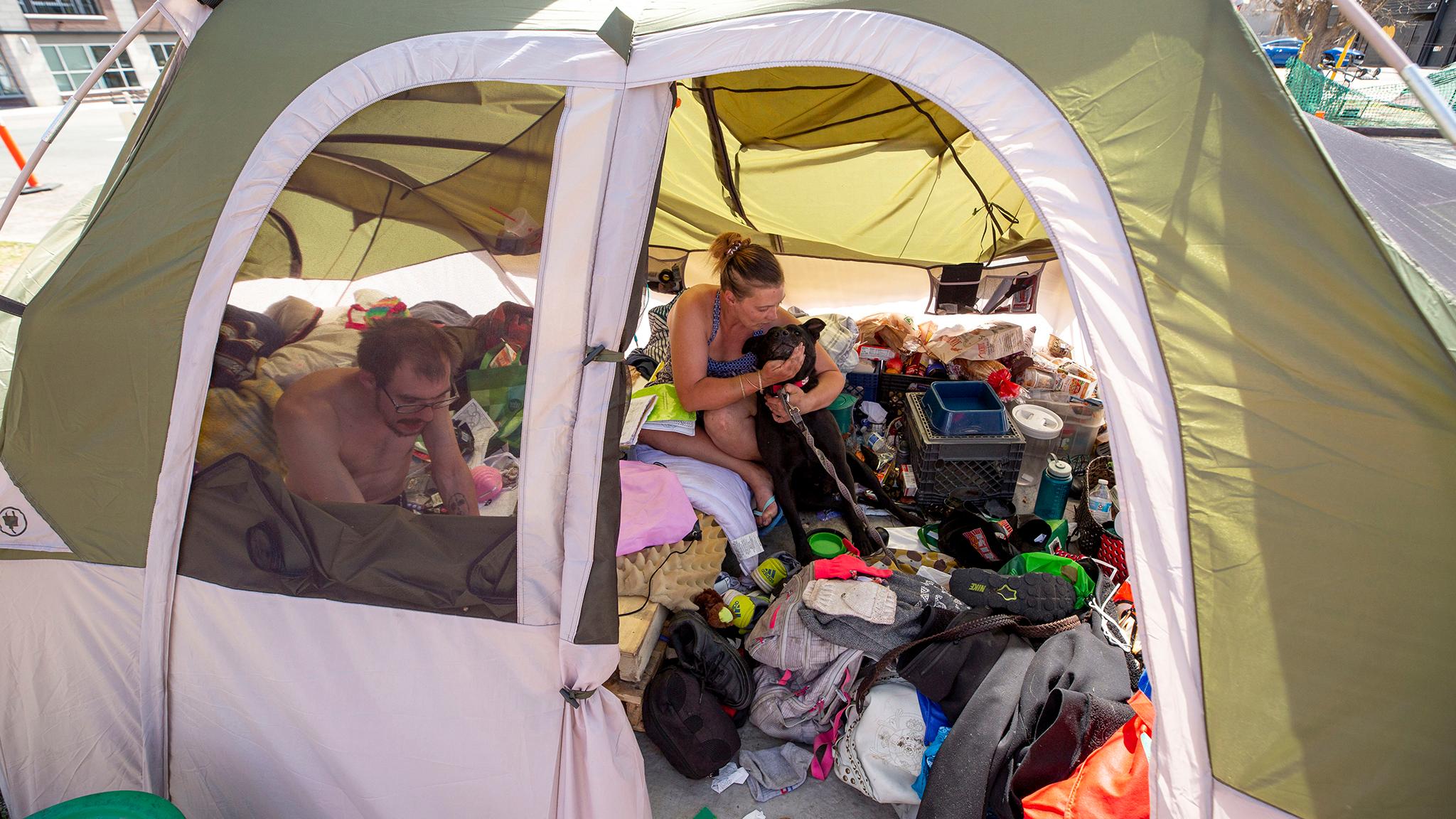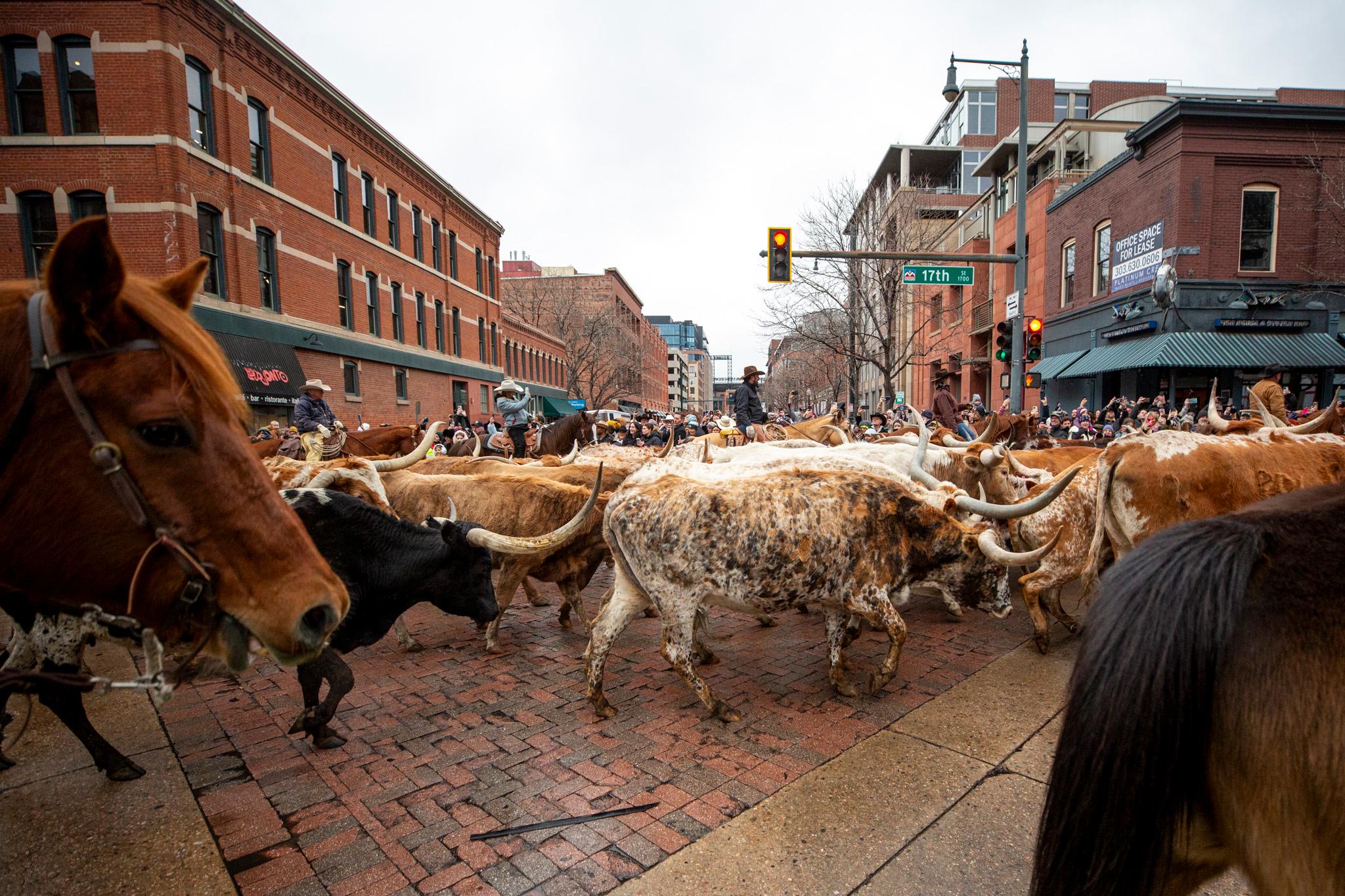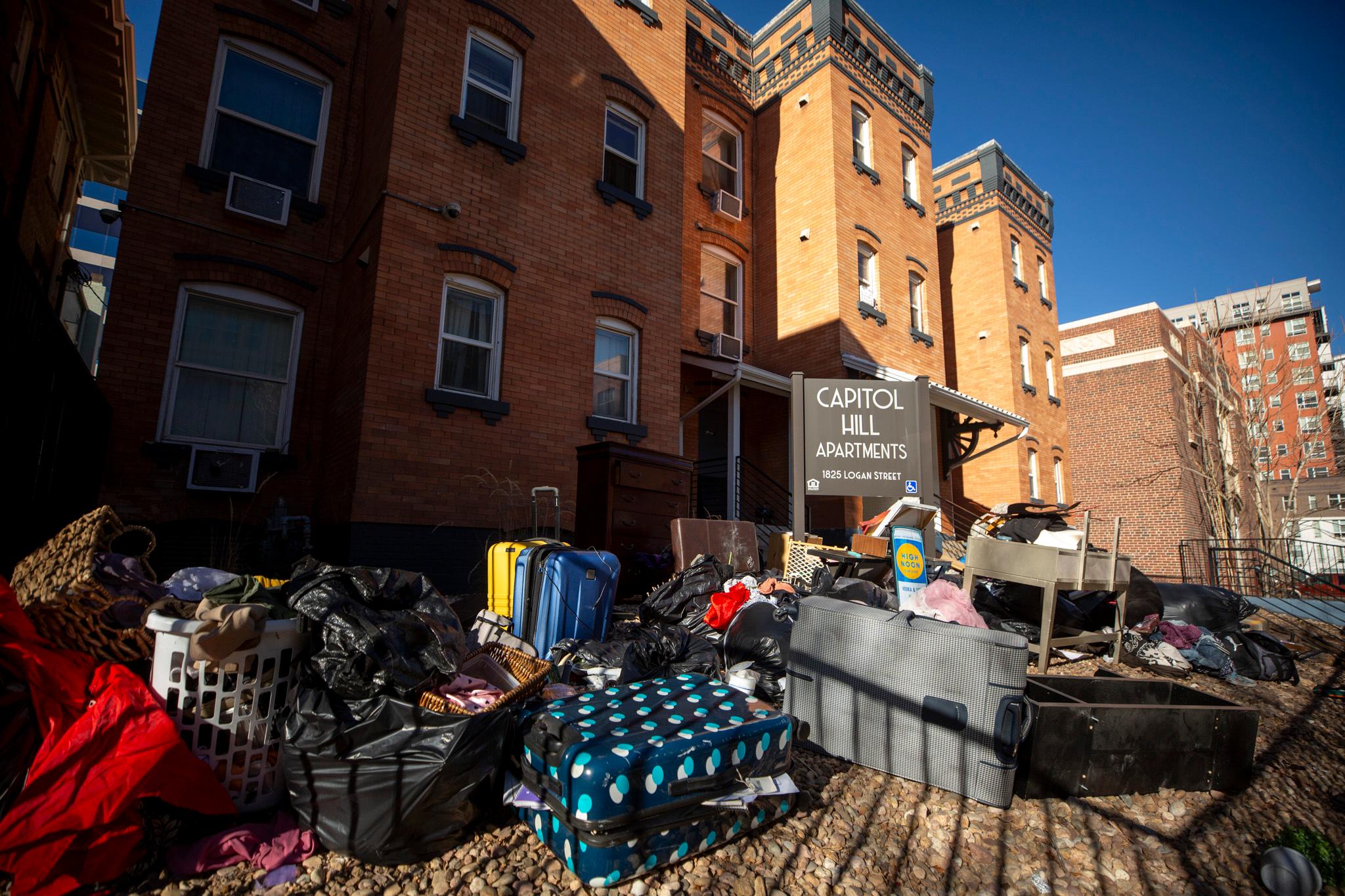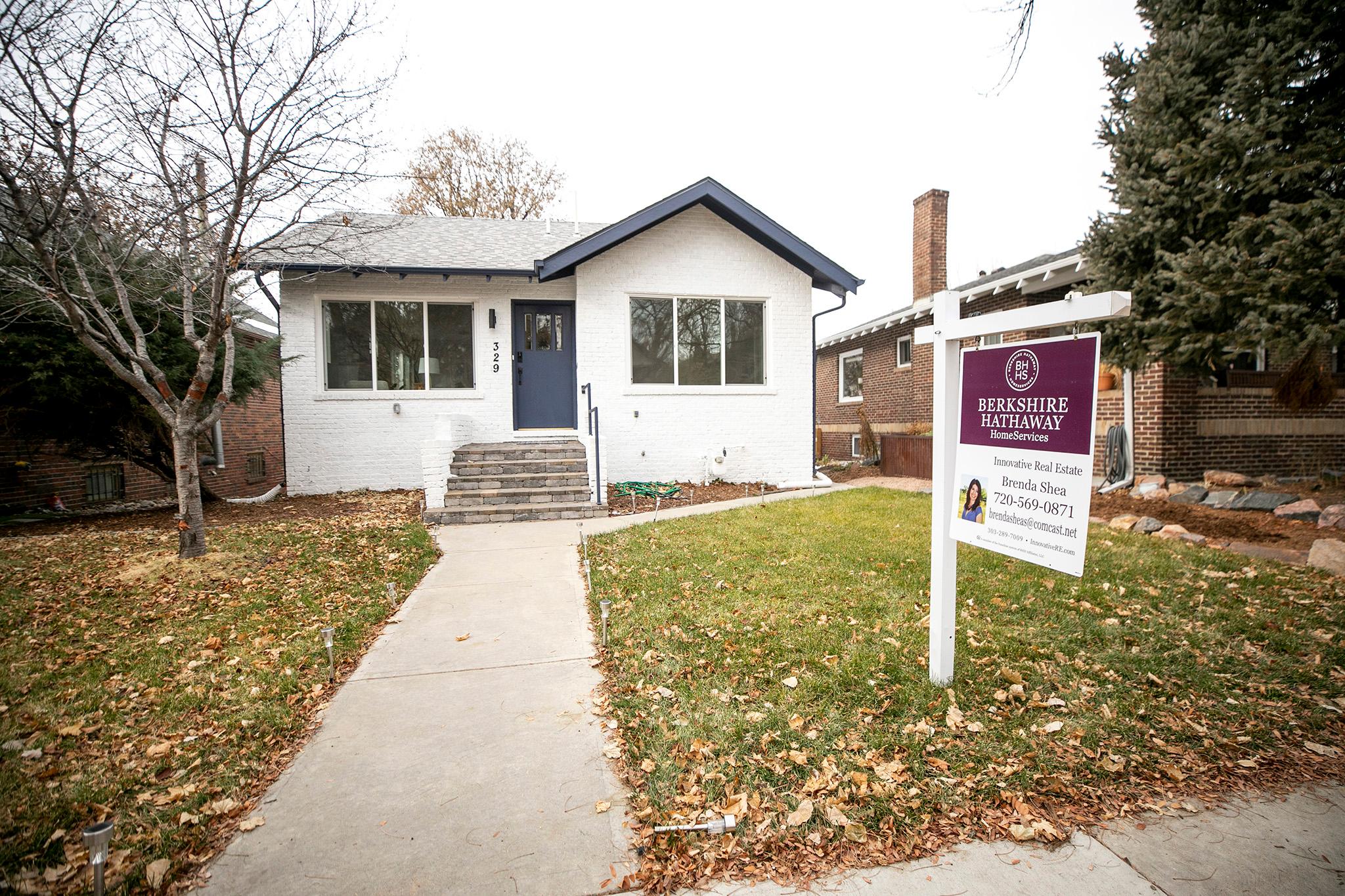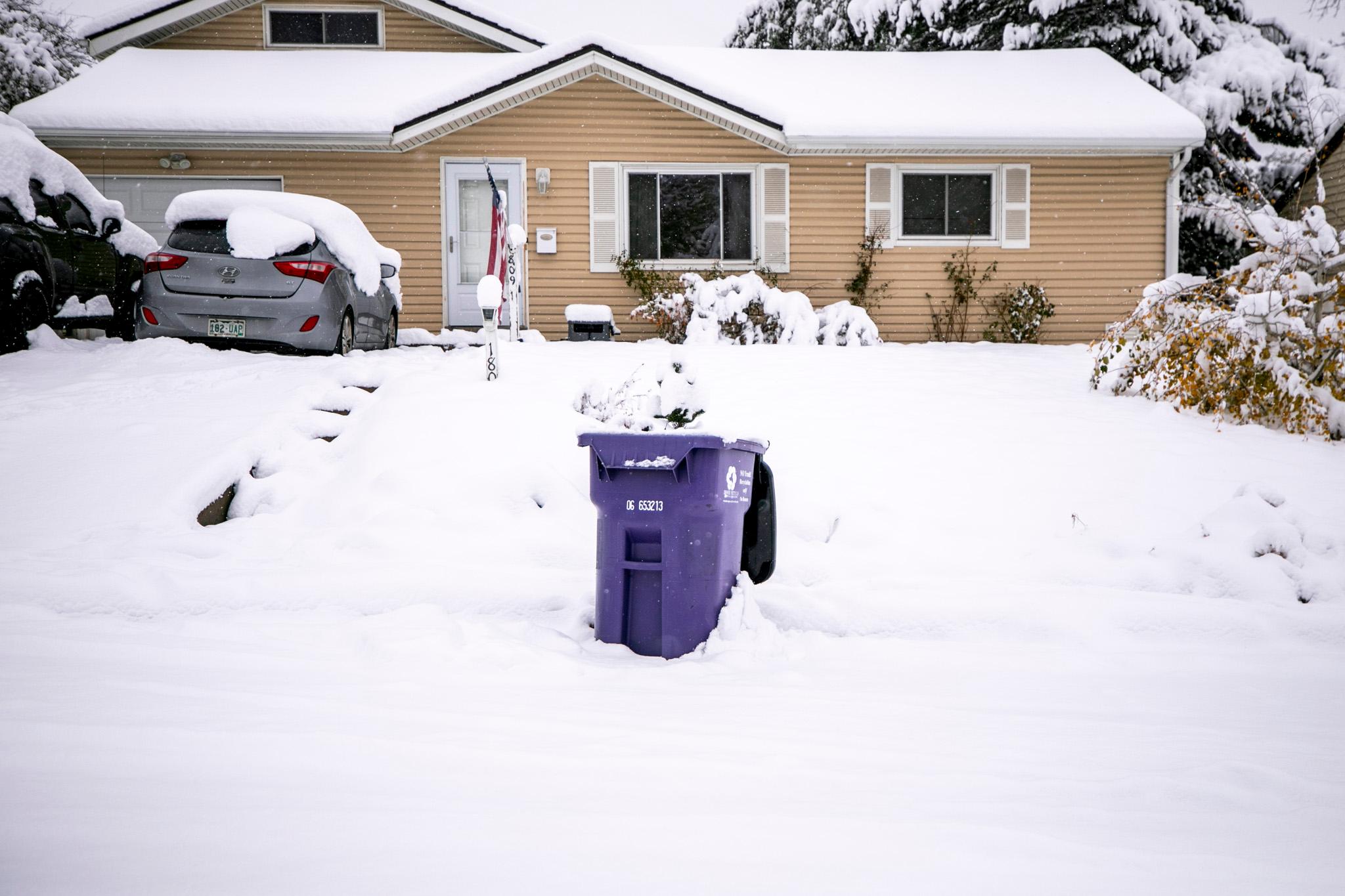Misty Splud found out she was pregnant about three months ago, as she was weening off methadone. She said she also learned she was positive for hepatitis C around the same time. Now, she's living in a tent with her husband, Richard, and her dog, Dirty Kid, in an encampment that's been near 21st and California streets and 22nd and Stout.
Since the start of the COVID-19 pandemic, Richard has done all the shopping so Misty hasn't had to leave the tent. They've been hunkered down next to a city-contracted bathroom trailer so they could wash their hands as often as possible.
On Tuesday afternoon, the Spluds said they've felt safe in the encampment, which has grown since the last big city cleanup on March 11. Authorities have laid off on move-along orders for the last month or so.
But they know that's coming to an end on Thursday, when the city plans on disbanding the campsite to clean the sidewalks.
"They said want the grass to grow back," Misty said. "I just can't believe they're doing this to us."
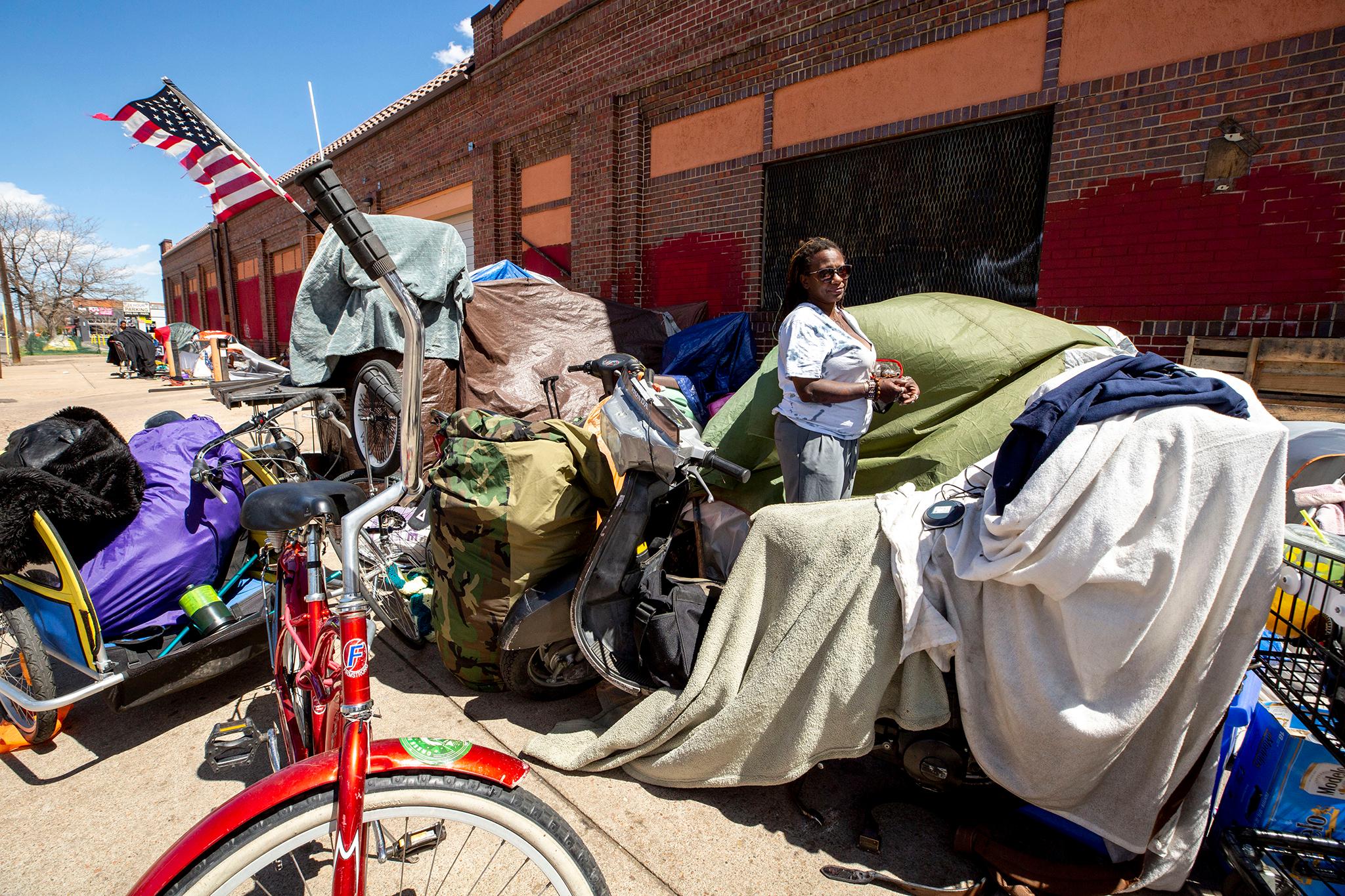
The city warned campers of the coming enforcement through signs it's attached to nearby posts. The notices characterize the imminent action as a "multi-agency cleanup."
The cleanup will happen as Denverites are under stay-at-home orders to curb the spread of COVID-19. During the pandemic, officials have overseen an unprecedented expansion of shelter services to stem the virus's spread. They've housed hundreds of men and women at the National Western Complex and Coliseum, and they've paid local hotels for rooms to keep the vulnerable population safe from infection.
Urban camping enforcement has also eased. Downtown sidewalks have become full-on encampments in recent weeks, with large tents and many people taking shelter on the street. Terese Howard, a longtime organizer with Denver Homeless Out Loud, said the camps are a "direct result" of the break.
She was at the 21st Street campsite on Tuesday, passing out water bottles and checking on port-a-potties that DHOL is paying $4,000 a month to maintain on the sidewalks. Howard said her organization didn't get the facilities permitted, and she hopes the city doesn't issue fines. She said Denver should have supplied them, anyway.
As she walked the block, she distributed signs reading, "Where is my housing?? I would gladly trade this tent for a house. We are not criminals. We are surviving."
"This is the city failing to do their job," she said.

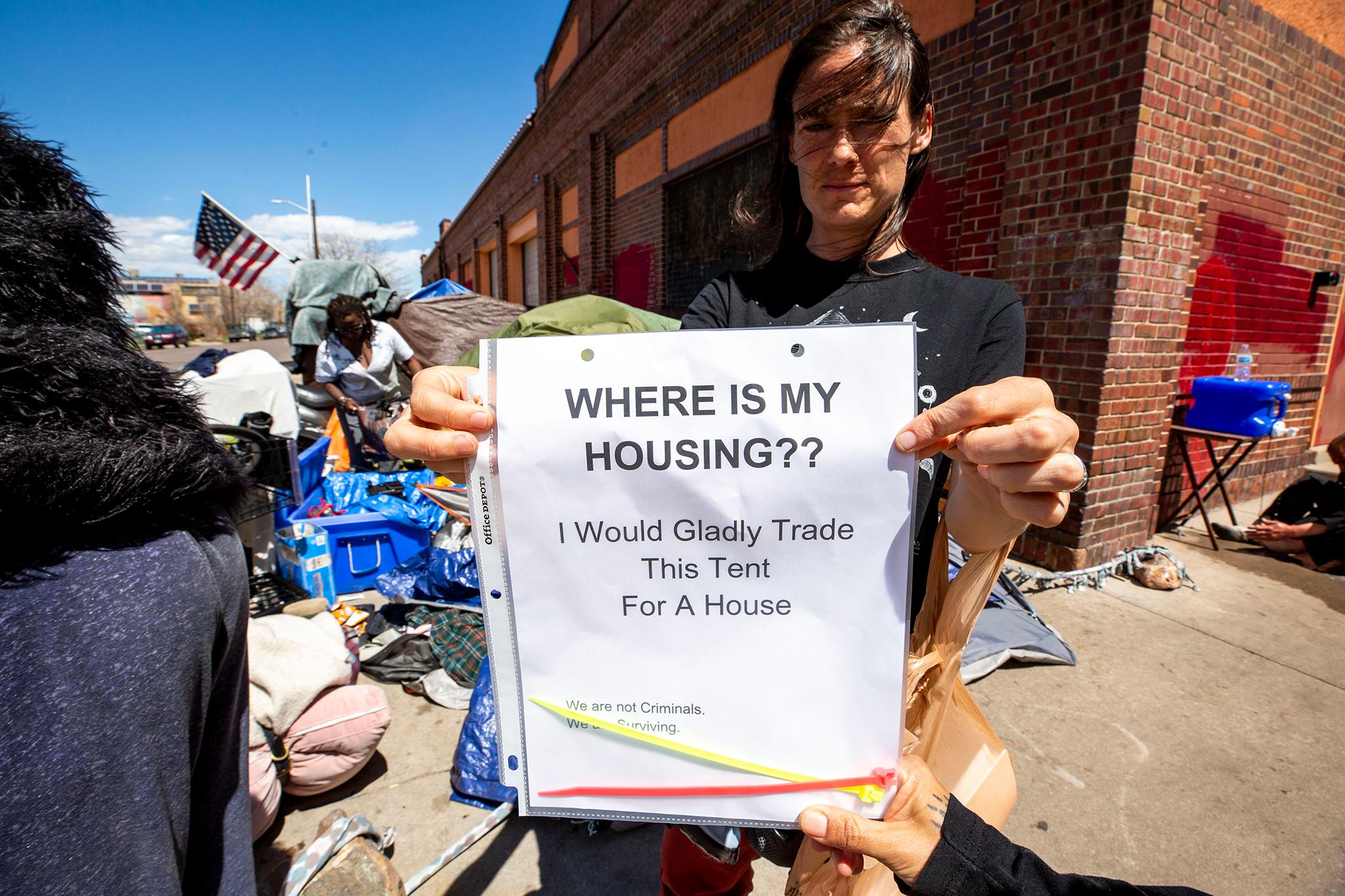
Kemish Anthony-Phillips echoed this idea as she packed up her belongings. She wasn't going to wait for police to make her move.
"This is still a reflection of the economy," she said. "This is ground zero."
JJ Wood, who was also packing up on Tuesday, said he thought he was immune to the virus. Martial law is his real concern. "Half of us think that's coming," he said, adding that the impending enforcement has only stoked his fear.
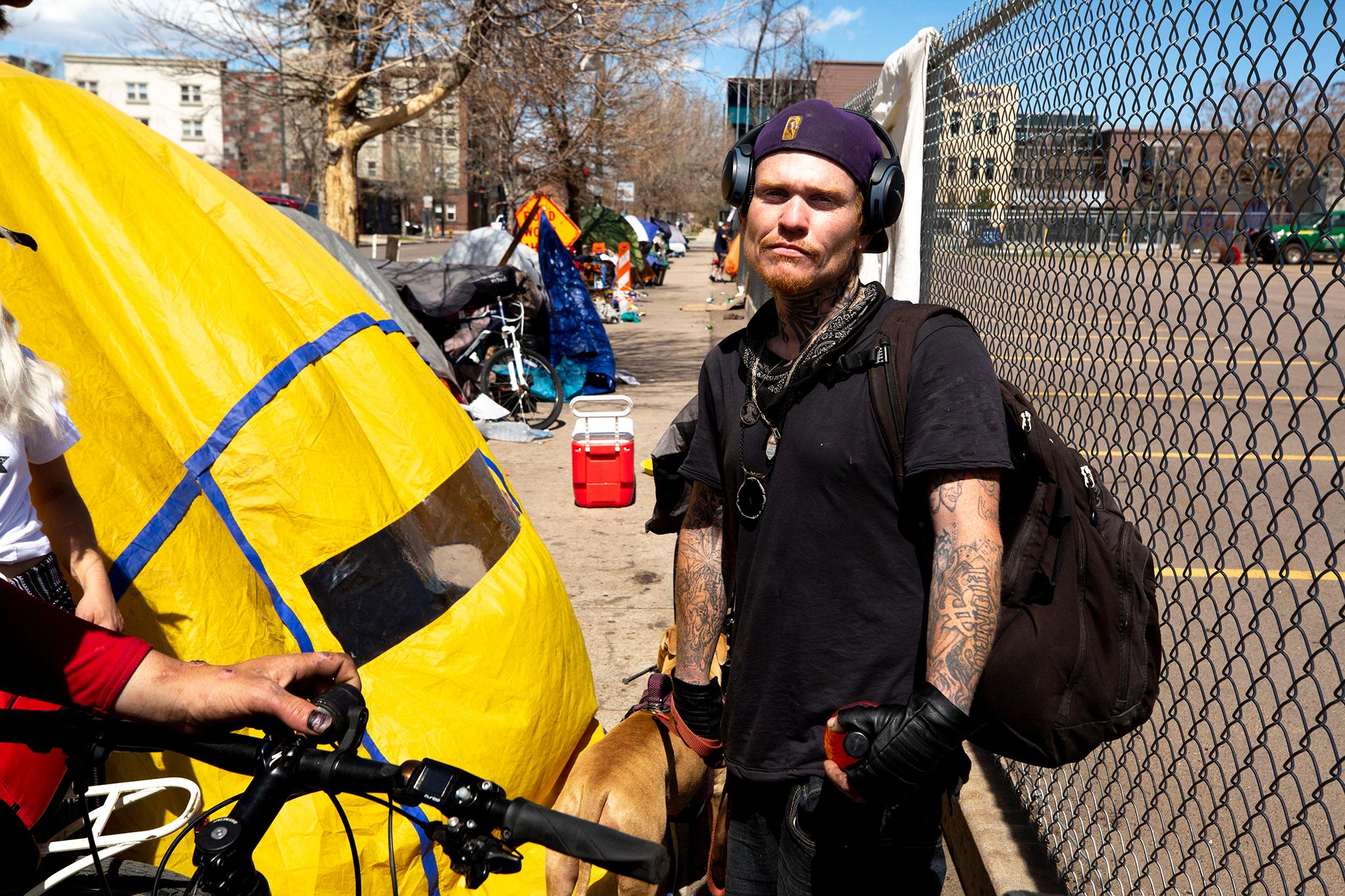
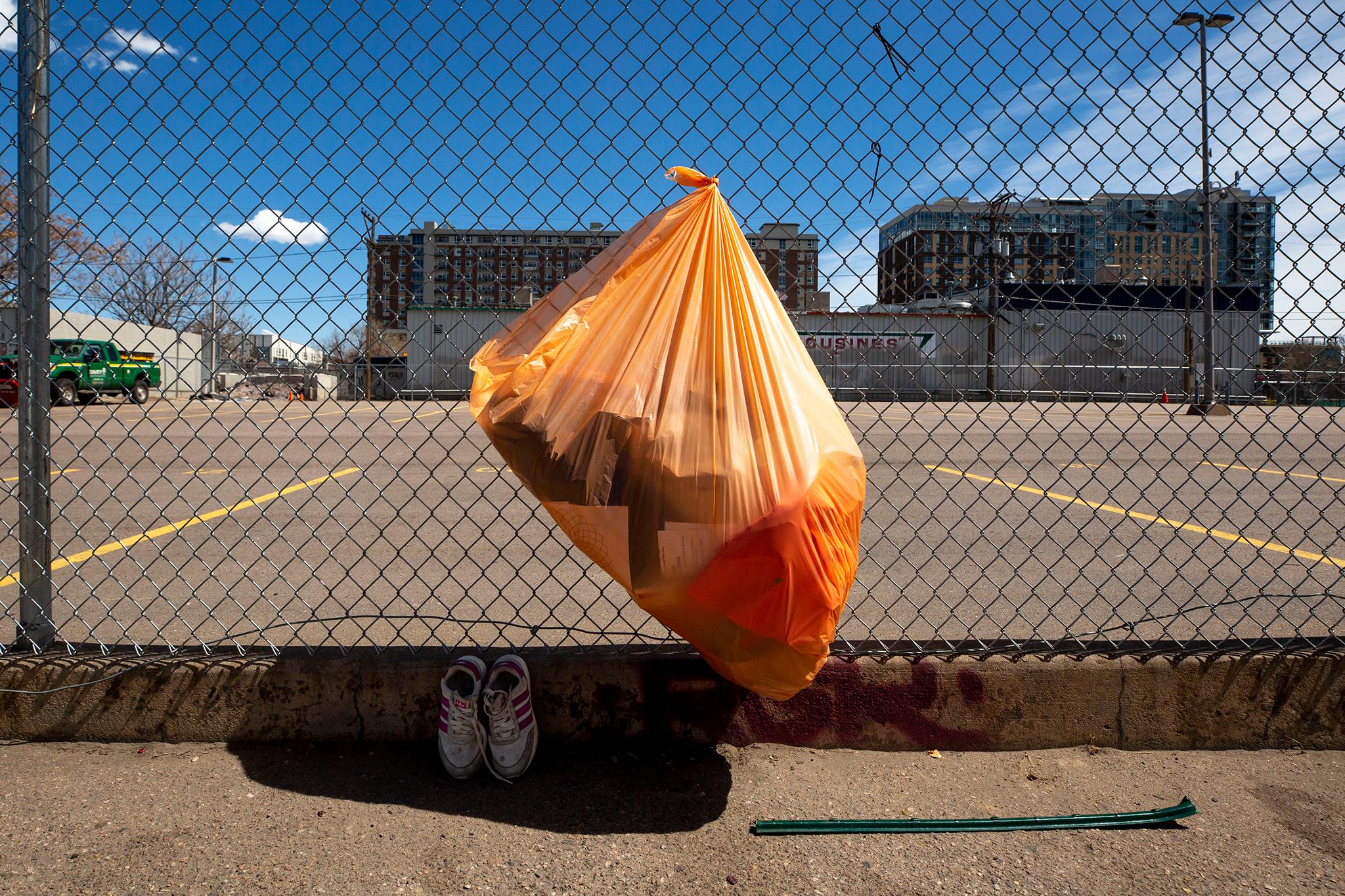
Wood said he's been homeless on and off for about five years. The last few weeks of lax enforcement have offered some reprieve. Though he's sleeping outside, he's found comfort in having a "general idea" of where he was headed each night.
But this week, he said, "I'm stressed out."
Sitting in her tent, Misty Splud agonized at the prospect of moving.
"I'm staying clean by staying down here," Misty said of the germs and the addiction she's been battling. "I don't want to have to worry about where we're going to go tomorrow."
